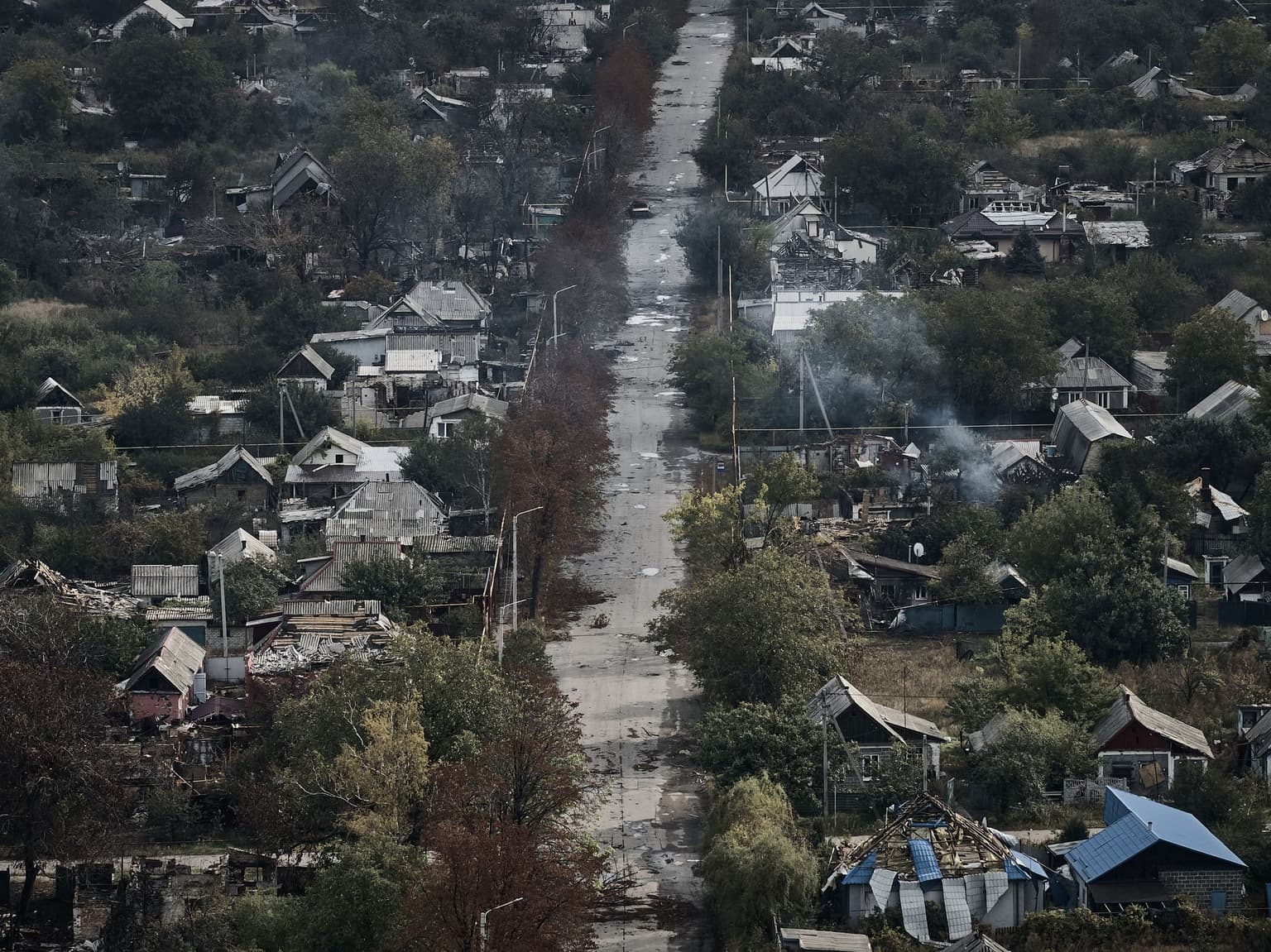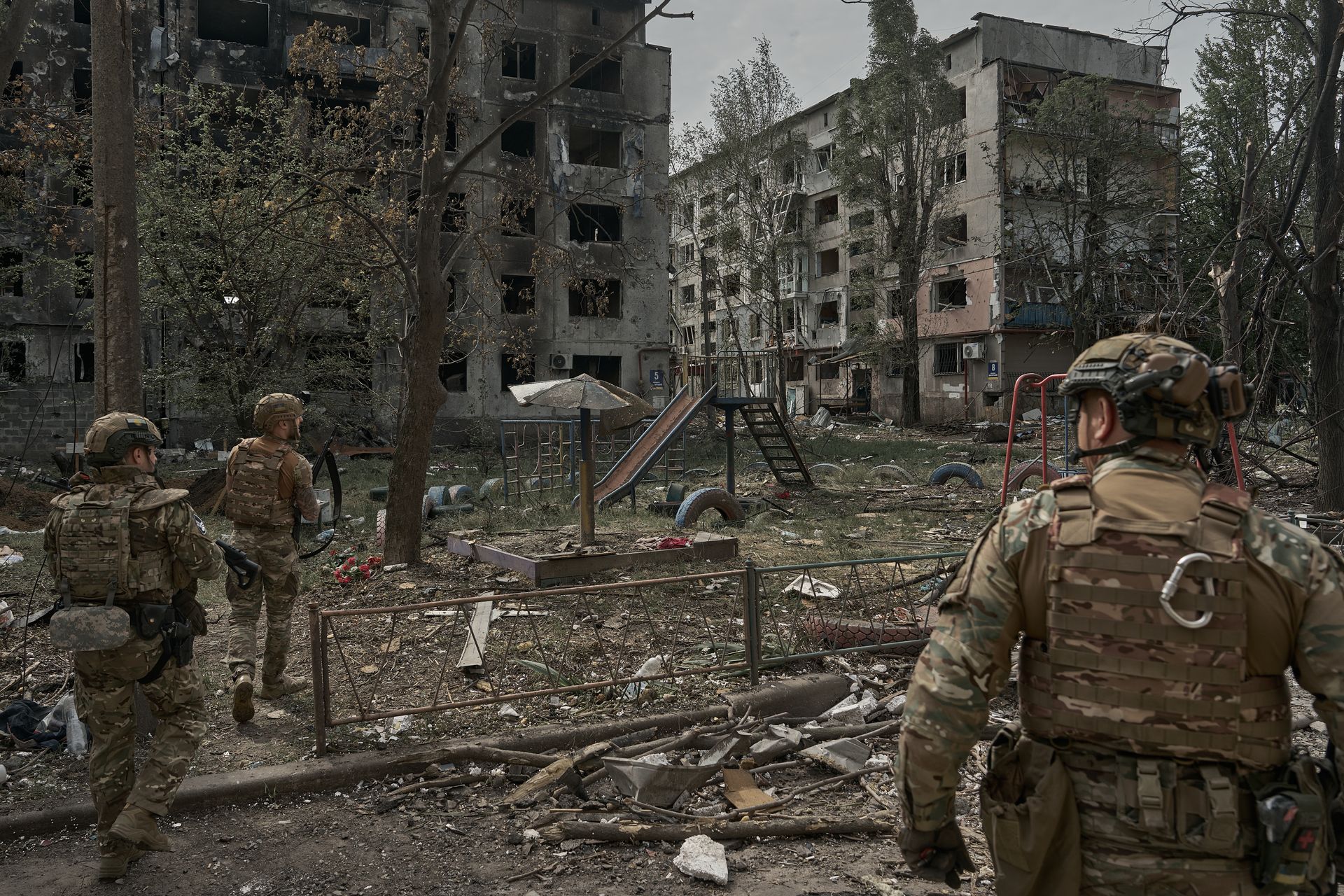Russian soldiers fighting disguised as civilians in Pokrovsk, Ukraine's military says

Russian forces in Pokrovsk are operating like sabotage and reconnaissance groups and complicating Ukraine's defense efforts by dressing as civilians, the commander of the 68th Jaeger Brigade, codenamed "Liutyi," told Suspilne on Nov. 19.
Any Russian military personnel changing into civilian clothing, or wearing the uniforms of Ukrainian forces or other Ukrainian security services, violates the laws and customs of war and is classified as a war crime.
The remarks come as Russian forces continue their advance on Pokrovsk, the primary target of Moscow's eastern offensive in recent months.
"It is more like sabotage and reconnaissance work. They do not follow any standard procedures, but their movements still complicate our logistics routes," Liutyi said.
Russian troops are also trying to exploit the weather — precipitation and fog — to move through the city at times when Ukrainian drones cannot track them.
At the same time, the Russian army avoids bringing heavy equipment into Pokrovsk too frequently, as it quickly comes under fire. Soldiers of the 68th Brigade struck a Russian tank on Nov. 19 as it approached the city.
"(Russian forces) have long since abandoned these attempts, when 16–20 units of equipment entered at the same time, because it is difficult to hide equipment from us. We will find it anyway and burn it," Liutyi said.
Liutyi added that Russian soldiers continue changing into civilian clothes, which is why Ukrainian forces sometimes detect them only once fighting has already begun.
"The most difficult thing is that they disguise themselves as civilians. They have been changing clothes for a long time and receive instructions to do so," he said. "Sometimes we identify the enemy only after the start of the firefight, because civilians will not open fire on our units."
Russian troops continue to target Ukrainian logistics, creating a so-called "killzone" around Pokrovsk that stretches 10–15 kilometers (5-10 miles) from the city to the frontline. As a result, Ukrainian soldiers must cover this distance on foot, "Liutyi" said.
"The enemy has brought many of its best crews here to work against us. The intensity of enemy drone strikes is so great that sometimes it is simply impossible to drive in (the positions)," the Ukrainian commander said.
"We are moving with the help of ground-based robotic systems. We are trying to deliver provisions to our units in this way. This is because a lot of equipment has been destroyed and burned by enemy drones," he added.
After taking control of Avdiivka, a longstanding Ukrainian stronghold roughly 40 kilometers (25 miles) southeast of Pokrovsk in February 2024, Russian forces have been steadily pushing toward Pokrovsk, a former key Ukrainian logistics hub located in a relatively secure part of Donetsk Oblast.
Over recent days, Russian forces have further stepped up efforts to complete the capture of the ruined city, hoping to surge forward beyond Pokrovsk and take the village of Hryshyne, the 7th Rapid Reaction Corps of Ukraine's Air Assault Forces reported.
Despite the threat of encirclement around Myrnohrad, Kyiv has doubled down on efforts to boost the defense of Pokrovsk, with President Volodymyr Zelensky personally visiting the area in November.











